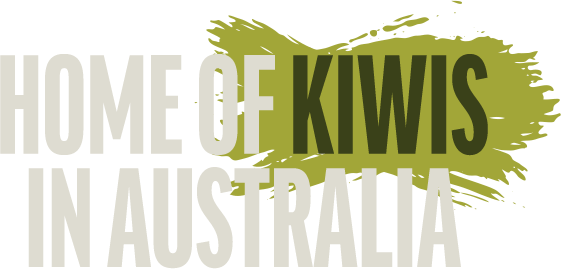
Discover the diverse banking options available for Kiwis in Australia. From the Big Four banks to building societies, explore key considerations for managing your finances effectively.
Choosing A Bank
The main banks in Australia are often referred to as the “Big Four”, and comprise National Australia Bank (NAB), Australia and New Zealand Banking Group Limited (ANZ), Commonwealth Bank and Westpac. There are also many building societies, credit unions and regional banks. The Big Four banks’ Automated Teller Machines (ATMs) are also accessible to customers of building societies, credit unions and regional banks through mutual agreements.
Most banks and building societies allow a certain number of free withdrawals per month from machines within their own network. However, when using an ATM belonging to another bank there’s usually a charge to the customer of around $2.50 per transaction. On top of that, there is so much to consider; service fees, deposit rates, interest rates, transfer fees, minimum account balances, overdraft fees, late payment fees, debit card transaction fees and more. You should do your own research when deciding whom to bank with.
The Big Four Banks:
NAB
Phone: 13 22 65
Mon-Fri 8am-7pm (Sydney/Melbourne time).
WA customers until 7pm WA time (or 6pm WA time during day light savings)
Sat-Sun 9am-6pm (Sydney/Melbourne time)
Website: https://www.nab.com.au
ANZ
Phone: 13 13 14
24 hours a day, 7 days a week.
Website: https://www.anz.com.au/
Commonwealth Bank
Phone: 13 22 21
24 hours a day, 7 days a week.
Website: https://www.commbank.com.au
Westpac
Phone: 13 20 32
Mon-Sun 8am-8pm.
Website: https://www.westpac.com.au
Other well known banks:
- AMP Bank Limited
- Bank Australia
- Bank of Melbourne – a subsidiary of Westpac
- Bank of Queensland
- Banks SA – a subsidiary of Westpac
- Bank of Sydney
- Bank of Western Australia (Bank West) – a subsidiary of Commonwealth Bank
- Bendigo Bank
- Beyond Bank
- IMB
- ING
- Macquarie Bank
- Me Bank
- St George Bank – a subsidiary of Westpac
- Suncorp
Employees of certain industries such as police, nurses and teachers are offered special services, rates and deals from some building societies and credit unions that offer banking services. You should check with your employer for more information.
Bank Accounts in Australia
If you’re planning to work in Australia one of the first things you will need to do when you get here is to set up a bank account or bank accounts in Australia. You will likely be paid weekly, fortnightly or monthly so you will need a functioning bank account very quickly so that your employer can deposit your salary into it. In order to do this, you can either apply online or go into your local branch. Some banks will require you to attend a bank in person with the necessary identification documents before you can withdraw any funds.
New arrivals can open an account during their first six weeks in Australia with no more than a passport. After that time you will be required to provide sufficient identification to satisfy the 100 point check system which may be made up of a valid passport, birth certificate, Australian driver’s licence, or details of your Australian residential address. You can learn more about the identification documents required for each bank online or at a branch.
Different Bank Account Types
Customers of Australian banks can choose from a wide range of bank account types. These include:
- Everyday transaction accounts. As the name suggests, these common bank accounts are used for all your daily transactions. You can typically deposit and withdraw money whenever you like, allowing you to take care of any purchases or expenses that may arise.
- Savings accounts. These accounts are very similar to transaction accounts but offer you a higher interest rate to help you boost your savings balance. You can sometimes even take advantage of bonus interest rates if you deposit a certain amount into your account on a regular basis, so it’s worth comparing what offers are available. Savings accounts typically let you access your funds whenever you wish and can be linked to your transaction account.
- Credit card accounts. Credit cards in Australia work the same as they do overseas, allowing you access to funds that might not otherwise be readily available. It’s worth researching what options are available as some cards come with low rates and low annual fees, while others offer reward programs to help you make the most of your spending.
- Foreign currency accounts. Typically offered by many of the larger banks, these accounts are designed for those who are still receiving some form of income in another currency. A foreign currency account lets you keep funds in another currency to take advantage of fluctuating exchange rates.
- Joint accounts. If you’re considering opening an account with your spouse of business partner, joint bank accounts are an option. These accounts allow anyone linked to them to make deposits and withdrawals.
- Term deposits. These are similar to savings accounts in that they may offer a high rate of interest, but the difference is that you’re not able to access your funds while they are held in a term deposit. Instead, your funds are locked up in the account for a fixed period of time and once the account has reached maturity, you have access to the initial deposit and all the interest it has earned.
Useful Info About Cash/Debit Cards
- A cash/debit card allows you to withdraw up to around $800-$1000 per day from ATMs 24/7 depending on the specific card and policies of the issuing institution.
- The freedom from queues, bank tellers and bank opening hours provided by cash/debit cards is invaluable, so you should think twice before opening an account with a bank or building society that doesn’t provide ATMs locally.
- Cash/debit cards can also be used at petrol stations, supermarkets, most retail outlets, hotels, in taxis, restaurants and some public phones.
- After activating your account and completing the ID check it can take up to 7 business days for your Personal Identification Number (PIN) (that you use to access funds with your card) to arrive in the mail. Your debit card arrives separately and can take up to 10 business days to arrive in the mail. Nowadays, depending on who you bank with, you may be issued a digital card immediately which you can use online.
Useful Info About Credit Cards
- Interest on credit cards is very high, around 20 per cent or more.
- An increasing number of businesses now charge a fee when payment is made with a credit card.
- The most commonly accepted credit cards in Australia are MasterCard and Visa.
- American Express and Diners Club are also accepted by many businesses.
- Most department and chain stores also offer their own credit cards.
- Interest rates on store cards are also very high, sometimes up to double that of Visa or MasterCard.
People who viewed this page were also interested in Tax in Australia
Page updated June 4th 2024
Moving to Australia
- Banking Options
- Childcare & Early Learning
- Community Services
- Credit Checks
- Driver Licence
- Financial Support
- Getting Connected
- Giving Birth
- Healthcare in Australia
- Insurance
- Legal System
- Marriage Relationships
- Pension Eligibility
- Police Check
- Renting Advice
- Responsible Service of Alcohol
- School Years
- Tax in Australia
- What to Bring
- Working With Children Check





